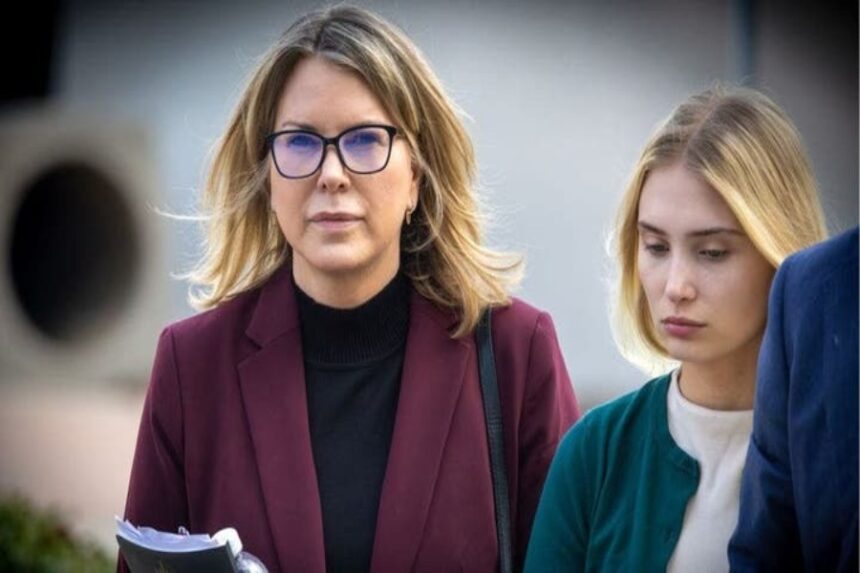In a somber Los Angeles courtroom, a narrative of tragedy, privilege, and accountability concluded with the sentencing of Rebecca Grossman, a 60-year-old socialite embedded in the city’s philanthropic and social circuits.
On a fateful evening in September 2020, Grossman’s decision to engage in a high-speed race led to the deaths of two young brothers, 11-year-old Mark, and 8-year-old Jacob Iskander, casting a long shadow over the Westlake Village community.
The court’s decision on Monday to sentence her to 15 years to life in prison marks a pivotal moment in addressing the often-intersecting lines of wealth, responsibility, and justice.
Over three years ago, the incident unfolded as the Iskander family crossed a street. Grossman, driving her white Mercedes at speeds that would later be reported as reaching up to 81 mph, struck the two boys fatally. The children’s mother, Nancy Iskander, managed to save another of her sons in a desperate last-moment effort, but the damage inflicted extended far beyond physical injuries.
During the trial, the prosecution painted a damning picture of Grossman’s actions, emphasizing her reckless driving and lack of immediate remorse following the crash. Data from her car’s recorder showed a mere tap on the brakes seconds before the collision, suggesting a negligible attempt to avoid the disaster.
This point was hammered home by the visible grief and outrage from the community and the victims’ families throughout the trial.
In her defense, Grossman’s attorneys highlighted her history as a philanthropist and her lack of prior criminal record, arguing for a sentence that included probation rather than prison. They presented letters from family and friends, portraying her as a compassionate individual whose single moment of poor judgment led to an unintended tragedy.
However, the narrative Grossman and her defense attempted to construct was starkly different from the one experienced by those affected by the tragedy. In court, Grossman made a tearful plea, asserting her suffering and acknowledging the pain of the Iskander family. “My pain is a fraction of your pain,” she stated, addressing Nancy Iskander directly in a courtroom charged with emotional tension.
Judge Joseph Brandolino, presiding over the case, acknowledged Grossman’s lack of criminal history and philanthropic efforts but underscored the gravity of her actions and their consequences. “While the defendant has indeed contributed to society in many positive ways, these actions cannot negate the recklessness exhibited on that September night,” Brandolino stated. His sentence—15 years to life—reflected a compromise between the maximum penalty sought by prosecutors and the leniency requested by the defense.
The District Attorney, George Gascón, expressed satisfaction with the sentence, emphasizing that it represented a fair response to the heinous nature of the crime. “This sentence sends a clear message that reckless endangerment of lives, particularly those of children, will be met with significant consequences,” Gascón noted.
In the aftermath of the sentencing, the community and legal observers have engaged in broader discussions about the influence of social status on legal outcomes. Grossman’s case has highlighted ongoing concerns regarding how wealth and societal standing might affect judicial proceedings. Critics argue that while the sentence is a step towards accountability, it also opens up conversations about whether others without Grossman’s background would have faced harsher sentences.
Outside the courtroom, Nancy Iskander’s remarks to reporters were poignant and reflective of a community still in mourning. “Today’s sentencing does not bring back my boys, but it begins the process of justice,” she said, her voice steady despite the visible grief. “This tragedy has reminded us of the critical importance of responsibility and vigilance while driving.”
As the case concludes, the legacy of this tragic event continues to resonate. It serves as a stark reminder of the responsibilities that come with privilege and the often disastrous consequences of ignoring those responsibilities. The community’s response, while mixed, leans heavily towards a desire for more profound reflections on justice, equality, and accountability.
For the Iskander family, the journey of healing is only just beginning. For Rebecca Grossman, the journey through the legal system has reached a critical juncture, one that will continue to define her legacy far beyond her philanthropic endeavors. For the community of Westlake Village, this case will continue to inspire debates and discussions about the balance of scales in American justice.




